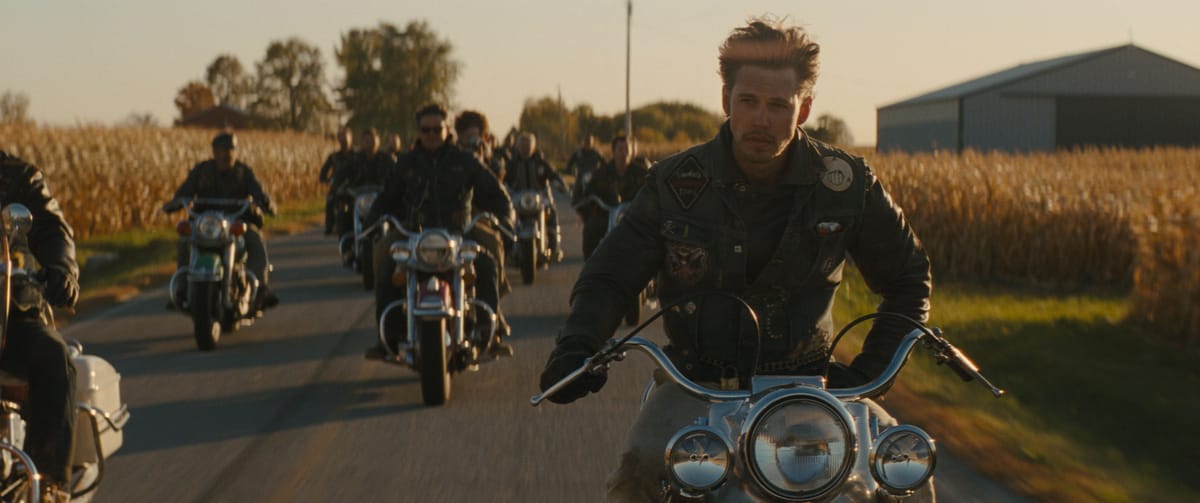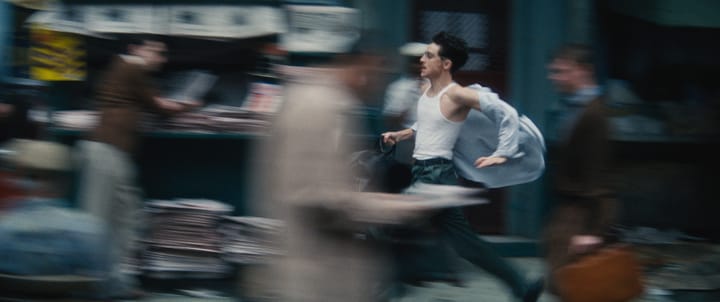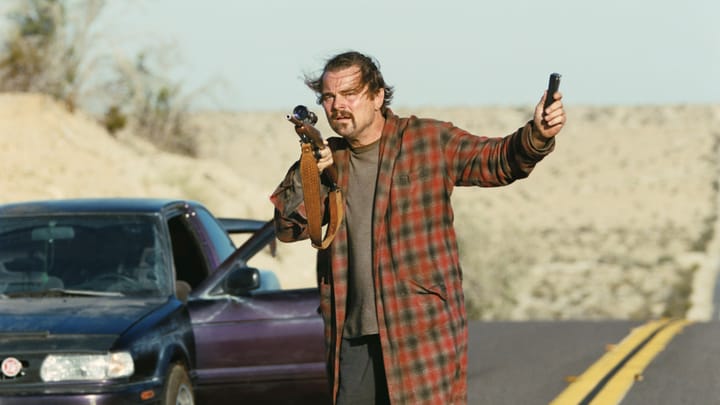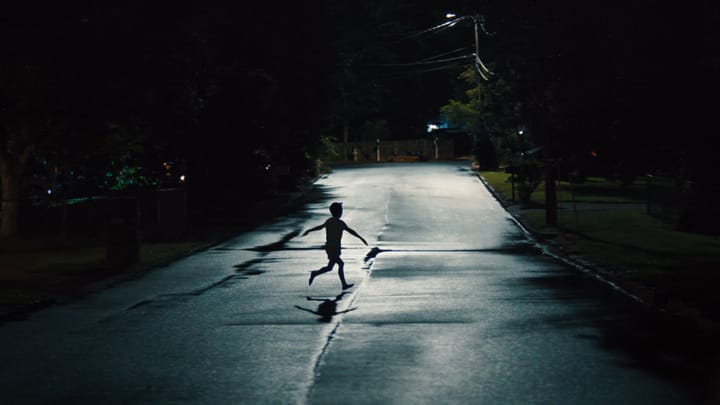The Bikeriders: Infinite Impermanence

The thing is, you got to keep movin’.
- Warren Oates in Two-Lane Blacktop (1971)
Monte Hellman’s Two-Lane Blacktop is one of the great American movies, a story of the relationship between people and the machines that take them across the endless horizon. A true road movie, one that never begins and never ends, infinite sun-beaten road in every direction. The spirit of freedom blanketed in a neverending instant, where the past and the future can’t exist. There is kinship in the road, everyone in search of some ineffable self-discovery deep within the cracked asphalt without ever finding it. Jeff Nichols’ The Bikeriders is like a postmortem on these disparate, rubber-worn freedoms and the brotherhood they brought, gazing into the horizon only to watch it slowly creep towards you as the world shifts into a new era of apathy and violence.
Johnny (Tom Hardy) forms his motorcycle club, the Vandals, after being inspired by Marlon Brando in The Wild One (1953), quickly finding a group of greasy, windswept drifters in search of an ephemeral freedom. The club has rules, arbitrarily drawn clauses sketched out to legitimize their aimlessness, but it has no goals; they drift around the streets of Chicago, sit around and drink, and generally refuse to engage with anything resembling the permanence of adult life. It’s all most of them have, this brotherhood of misfits, nothing to do but be rowdy, wild, and free. By shirking responsibility and isolating themselves from the real world they are allowed to exist in this comforting bubble of steely masculinity, never really processing their existence, ever driving away from the past.
The film’s central focus is on Benny (Austin Butler) by way of his wife Kathy (Jodie Comer), who relays the story of the Vandals to scruffy journalist Danny (Mike Faist), a narrative framing device that ultimately proves effectively fruitless. Loosely constructed around Kathy’s recorded narration, it plays like a Scorsese-esque oral history dropping into various points on its mid-60s timeline, beginning by lighting a fire on the open road the characters all ride on, an electrifying romantic opening that instantly sells its orbiting lead characters. Butler’s Benny epitomizes the romantic ideal of a rough biker with something gentler aching to be dug out of the steeled, oil-stained exterior, and Comer’s sweetly realized Midwesterner commits to finding it the second she seems him at the pool table on the other side of the Vandals’ bar.
The film soars when it glides along on the glistening vibe of Benny and Kathy’s romance played across the backdrop of the club’s ragtag group of miscreants all finding home with each other, as genuine and kind as they are tough and angry. The breezy Two-Lane Blacktop feel is at its best here, people in search of themselves through their relationship with the machines they tinker with and the roads those machines carry them down. Some people stick around, some people just float through, in and out, an intersection somewhere along the highway. Like the bikes they chop together, the pieces slowly change over time, forming into something new, cultures and attitudes shifting with the world around them.
While the Vandals roam blissfully around the outskirts of Chicago, America is slowly uprooted by the devastation of its youth in Vietnam, slowly replacing the cultural atmosphere of hazy cigarette smoke and cheap beer with the pungent aroma of weed and an undercurrent of violent desire. All they know is bloodshed, dissociated from the self and disillusioned by a country that has abandoned them. All semblance of loyalty and brotherhood is slowly lost, and the fulcrum of the film becomes Benny caught between the encroaching violence of the Vandals and Kathy’s desire to push him into some semblance of structured permanence so she can finally settle down.
The dream is in the impermanence, caught in that space where nothing ever has to matter, but there’s no way to stop the imminent threats to their way of life. As much as they try to fight it and remain steadfast in their carefree lifestyle, their own easygoing attitude is what ultimately untangles them, too disparate and disorganized to retain control over their own creation. The film is also incapable of reconciling with its own impermanence, as if Nichols wished he could just coast along in the warm air along with the club he’d built forever. It sort of falls apart when forced to find its intended resolution, lost in its decades of Kathy’s narration in search of a path to appropriately wrap up its many emotional and narrative threads.
Caught between its disparate parts, like the freewheeling open air of Two-Lane Blacktop colliding with the post-Vietnam violence of the Hughes brothers’ Dead Presidents (1995), only all you’re left with is bits and pieces of something that feels like it could have been formed into a more cohesive picture. Comer’s narration is critical to the structure of the film but also undermines its atmosphere, and its failure to really explore the crumbling brotherhood of a once great motorcycle club as it descends into franchised gang violence and bloody drug trade leaves it feeling underbaked. Nichols’ portrait of a country slowly sliding into detached violent fervor isn’t bad – it’s hard to really hate anything with a magnetically memorable performance from Michael Shannon, who remains nearly silent in the background for the entire film save for one monologue about what led him to the Vandals – but it doesn’t quite stick the landing on becoming the next great American movie.





Comments ()